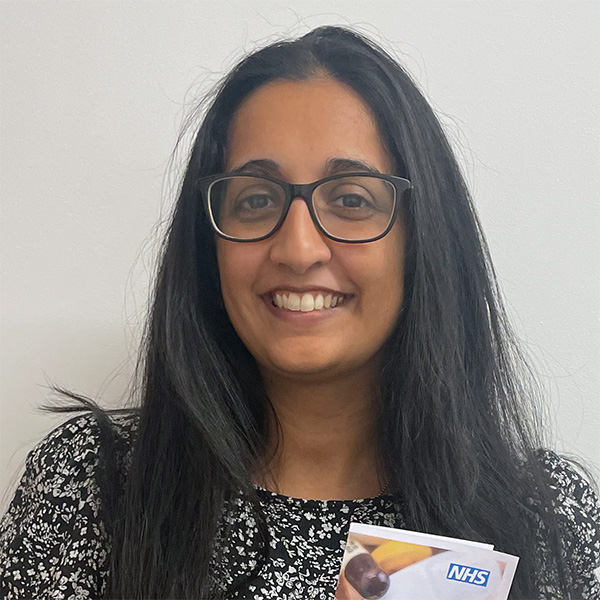
Rajdeep, Senior Interface Pharmacist
- Community Workforce
- Name of service: Lewisham Integrated Medicines Optimisation Service (LIMOS)
- Describe your role in three words: Holistic, collaborative, patient-centred
What does your day look like from sunrise to sunset?
First thing in the morning I check my appointment list, read referrals and appropriate records (clinic letters, etc.), before carrying out home medication support assessment visits. On these visits I collaborate with the patient, their families and other professionals. After, I write clinic letters to coordinate medicines care, discuss complex patients in GP multidisciplinary team meetings, follow up with patients, or work across the system to avoid medicine wastage and improve efficiency.
How does your service support the residents of south east London?
We aid Lewisham residents with long-term conditions who are better supported by staying at home, but need medication support. We address adherence issues, provide personalised medication care plans to help maintain our patients’ independence, and medication reviews to help patients optimise their medication usage, we also reduce overprescribing and waste.
What’s the best way of explaining your role in the team?
As a senior pharmacist I work alongside pharmacists, pharmacy technicians, social care and other professions to act as the interface between primary and secondary care and health and social care to review patients support needs in their own homes. I provide clinical support to ensure patients are clinically safe particularly across care transfers, are involved with decisions about their medicines and ultimately to help them avoid hospital admission.
Tell us about a time when you felt you made a difference to someone
I make a big difference through the little things. For example, I treated a patient who was visually impaired and struggling with booking Covid and Flu vaccinations, as she could not use her computer. I have a holistic view of patients so I am able to help them beyond my core role; in this case I helped her book an appointment at a local pharmacy.
What do you love about your role?
When I work with patients in their homes I can see the difference I am making to their quality of life more clearly. I learn so much more about a patient when meeting them in their home environment, where it is easier to build a rapport and engage in open conversation. Getting positive feedback from my patients highlights the importance of collaborative working to support patients with medications.
What advice would you give to someone starting in this role or keen to work in a similar service?
Working in a community medicines support service is entirely different to other pharmacy roles, but don’t be afraid! Although knowledge of how pharmacy works is key, good communication skills, the ability to build relationships across primary and secondary care, and a desire to proactively meet your patient’s needs is just as important.
